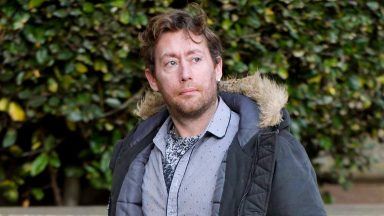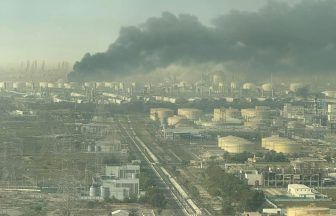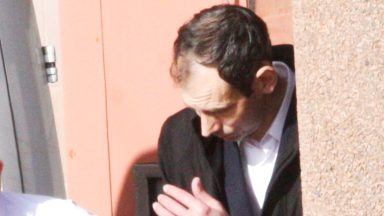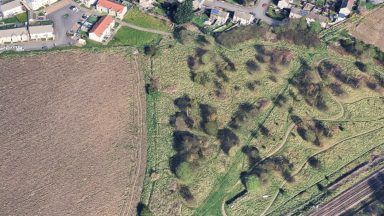A 26-year-old British army medic from Scotland was killed in a missile attack on a base in Iraq, the Ministry of Defence said.
Lance Corporal Brodie Gillon, from Ayr, who served as a Reserve with the Scottish and North Irish Yeomanry, died after a dozen missiles were fired at Camp Taji, north of Baghdad.
Two US servicemen were also killed in the attack on Wednesday, and another 12 military personnel were injured.
L/Cpl Gillon joined the regiment in September 2015 as a Combat Medical Technician, before qualifying as a Class 1 Combat Medical Technician in 2018.
She was killed while volunteering as part of the Irish Guards Battle Group during their deployment to Iraq, the Ministry of Defence (MoD) said.
Her commanding officer said she was a “hugely popular character” in a tribute on Thursday, adding he was “proud and humbled” to have served alongside her.
Lieutenant Colonel William Leek, Commanding Officer Scottish and North Irish Yeomanry, said: “She was a larger than life soldier who was determined to deploy on operations, help others, develop herself and gain practical experience.
“She had already achieved a great deal in her relatively short time with us and it was abundantly clear that she was destined for great things in her civilian and military careers. Her loss is keenly felt.
“My deepest condolences go to her family and loved ones. They are in my thoughts and prayers, and those of the wider Regimental family.”
Earlier on Thursday, US secretary of state Mike Pompeo said the attack would “not be tolerated”, while Foreign Secretary Dominic Raab said it was a “cowardly” act.
He added: “We will defend against these deplorable acts and hold those responsible to account.”
Defence Secretary Ben Wallace said it was clear L/Cpl Gillon was a “shining example of what our Armed Forces and Reserves stand for”, as he sent his condolences to her family.
Meanwhile, one of the US’s leading generals has suggested Iran was behind the missile attack.
General Kenneth McKenzie, commander of United States Central Command (CENTCOM), told a US Senate committee in Washington he suspected Iranian proxy group Kataib Hezbollah was to blame because it is the “only group known” to have carried out similar attacks.
Speaking before the Senate Armed Services committee, the general added: “While we are still investigating the attack, I will note that the Iranian proxy group Kataib Hezbollah is the only group known to have previously conducted an indirect fire attack of this scale against US and coalition forces in Iraq.
“While periods of decreased tension may provide the illusion of a return to normalcy, ample intelligence and indeed yesterday’s actions indicate the Iranian regime’s desire to continue malign activities that threaten lives, destabilise sovereign nations, threaten freedom of navigation, regional commerce, global economic supplies and the global economy itself.”
The general added that the coalition presence in Iraq had established a “rough deterrence” against Iran, meaning they no longer carried out “attributable” missile strikes against US bases.
The attack coincided with what would have been the birthday of Iranian general Qassem Soleimani, who was killed in a US drone strike in January.
The Iraqi military has opened an investigation into the attack, which came amid mounting tensions between the US and Iran.
In January, the MoD told the PA news agency there were around 400 personnel in Iraq across three main bases – Camp Taji near Baghdad, Union III in Baghdad, and Erbil in Iraqi Kurdistan.
Officials did not say what group they believe launched the rocket attack but Kataib Hezbollah or another Iranian-backed Shia militia group is likely.
Kataib Hezbollah was responsible for a rocket attack on a military base in Kirkuk in December that killed a US contractor, prompting American military strikes in response.
It led to protests at the US embassy in Baghdad, which was followed on January 3 by the air strike that killed Gen Soleimani and Abu Mahdi al-Muhandis, a leader of the Iran-backed militias in Iraq, of which Kataib Hezbollah is a member.
Kataib Hezbollah has been designated a “foreign terrorist organisation” by the US State Department since 2009.
Follow STV News on WhatsApp
Scan the QR code on your mobile device for all the latest news from around the country



























